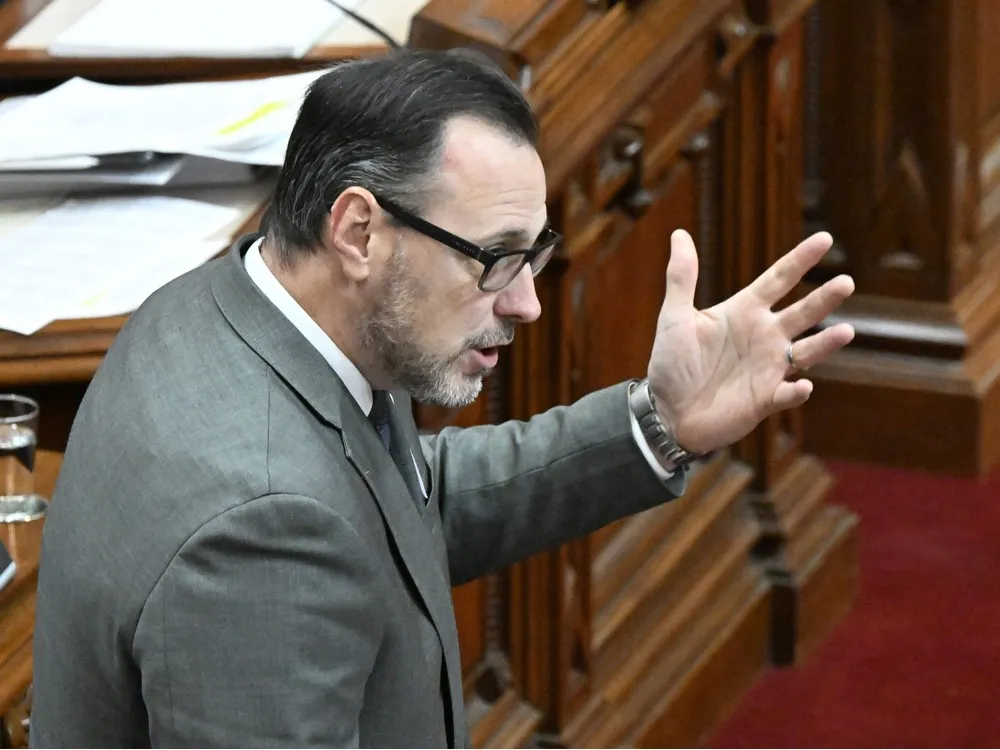By Montreal Gazette,Philip Authier
Copyright montrealgazette

Advertisement oopStory continues belowThis advertisement has not loaded yet, but your article continues below.
Manage My Account
Advertisement 2AdvertisementThis advertisement has not loaded yet, but your article continues below.
Article contentIt is estimated an average of 11.3 per cent of hotel and restaurant jobs in Quebec are vacant.Article contentThe associations asked Quebec to step up pressure on Ottawa to ease the rules and even add a grandfather clause to ensure workers can stay.Article content“The federal government is part of the equation,” Restaurants Canada vice-president Marie-Pier Richard told the committee. “We believe the government of Quebec can show its leadership in supporting our demands.”Article contentThey appear to have Roberge’s ear. He argued Quebec is in talks with Ottawa on this subject already.Article content“It’s not because we have not won the argument today that we won’t win it next week,” Roberge said. “I know this is on Prime Minister Mark Carney’s desk.Article content“The grandfather clause is very important, so we are defending businesses in the regions in this sense. But at the same time we say be careful, we can’t take in hundreds of thousands over what we have now. We have to consider our capacity to manage them.Article contentAdvertisement 3Story continues belowThis advertisement has not loaded yet, but your article continues below.Article content“We can’t have a wall-to-wall, dogmatic approach. We will continue to welcome people, we will continue to have foreign temporary workers, and we are asking Ottawa to preserve the foreign temporary workers who are in the province outside of Montreal and Laval.”Article contentRoberge also blamed Ottawa’s lack of action on temporary immigration for Quebec’s decision to cut its number of permanent immigrants starting in 2026 despite warnings from the business community that the move will hurt the economy.Article content“The number will go down, of course,” Roberge said. “We have to reduce the number considering we have 600,000 temporary immigrants here in Quebec now.Article content“This is because of Ottawa’s lack of success taking care of our borders. Considering the reality right now, housing, education, health care, we have to reduce our numbers.”Article contentPresented by Roberge in June, Roberge’s plan floats three scenarios for the total number of immigrants for the period 2026-2029: 45,000 a year, 35,000 or 25,000.Article contentAdvertisement 4Story continues belowThis advertisement has not loaded yet, but your article continues below.Article contentAs a comparison, Quebec will have accepted a total of 66,000 by the end of 2025.Article contentRoberge argued 2025 was an exceptional year and not a real indicator of the level Quebec traditionally admitted.Article contentIn comments opening the hearings Wednesday evening, Roberge described an imbalance between the number of immigrants and Quebec’s ability to take care of them.Article content“The challenge is to find the balance or, shall I say, return to the balance between these people who flee misery and want to improve themselves and our capacity to welcome them,” he said.Article contentBut Roberge has run into a brick wall with other members of business community, who argue Quebec needs more permanent immigrants to fill vacant jobs.Article contentRoberge said the government cannot be ruled by any one lobby group.Article content“We will consider the global interests of the Quebec nation,” Roberge said. “We will continue to welcome people but in a scenario of revision and reduction.”Article contentArticle contentAdvertisement 2This advertisement has not loaded yet.
Featured Local Savings



